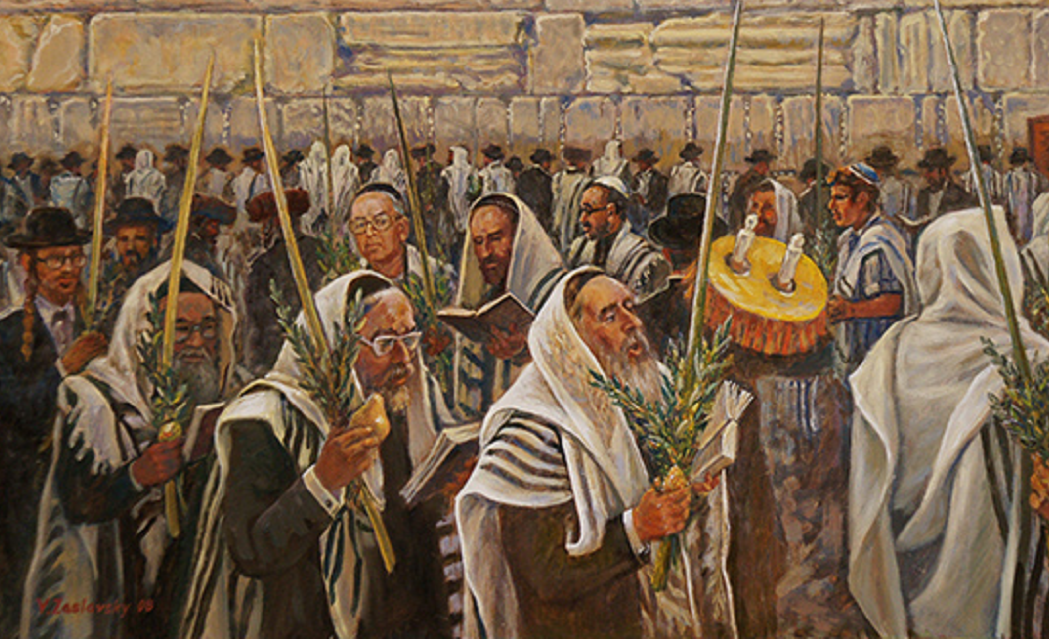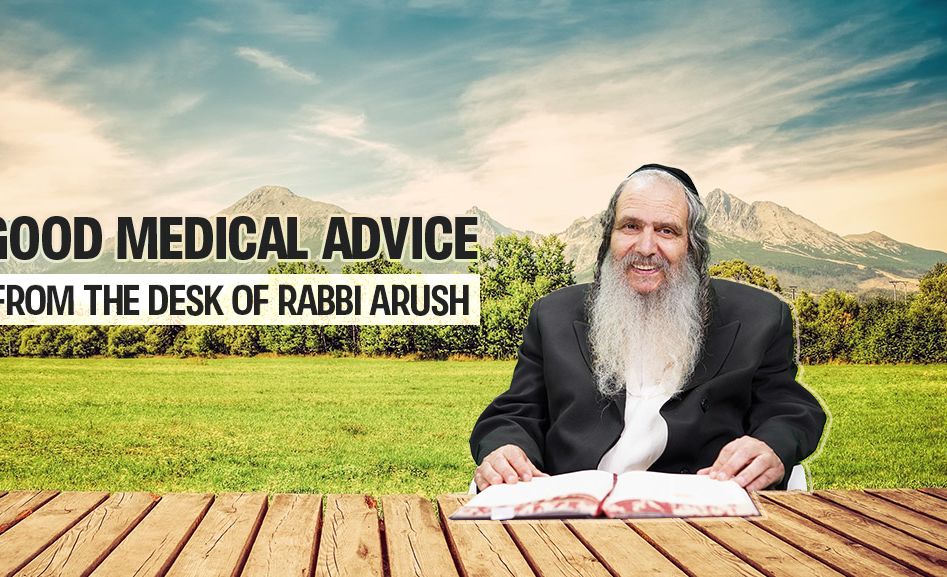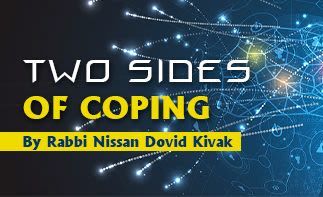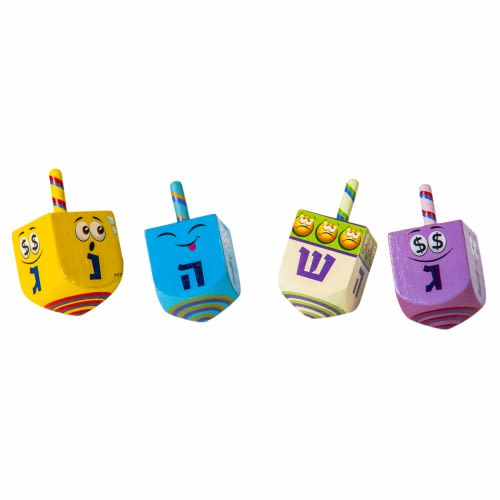
A Little Help from our Friends
With our soldiers risking their lives for us, shouldn’t we at least devote a few minutes a day to praying for them? Rebbe Nachman tells us more about friendship…

“The Essential Rebbe Nachman”, Part 6
Rebbe Nachman on Friendship, Part 2
Wanting the best for my friend
I still want and long for my friend to be a pure Jew and a Tzaddik even if I myself feel unable to achieve the same. Even when I find myself unable to serve God, I am happy when another Jew serves Him.
I want, long and yearn for all Jews to be pure, true Tzaddikim. Perhaps I feel unworthy in myself, but still, I am happy when my dear friends and associates and all other Jews are true Tzaddikim. Our greatest expression of love and kindness to our friends and all other Jews is to want them to attain their true purpose as ordained by God’s good will, because this is the true good for Israel.
People can easily cease serving God, especially if they become trapped in some evil craving or sin. Many such people hate those who are still trying to serve God and want to see them give up. They discourage and disparage them, telling them that they too will give up.
There are numerous people who were once highly devoted but have since lapsed in various ways. On the other hand, many of today’s younger generation have a great longing for God and have started praying with earnest intensity and studying zealously. When those fallen Chassidim see these young people, they ridicule and abuse them. They do everything they can to discourage them, telling them that their service is not genuine. All this is out of jealousy – because they themselves have fallen and want everyone else to be like them.
However, the truth is that one should want the opposite. Even when a person feels unable to serve God, he should be happy when others are making an effort. (Sichot Haran #119)
Bad Influences
Other people have tremendous power to influence a person and deter him from serving God and from drawing close to the true Tzaddik. The power of other people is greater even than the power of a person’s own evil urge.
The power of a particular individual’s evil urge reaches only as far as the specific world in which it is rooted. Man, however, includes all the worlds. For this reason the obstacles caused by other people can be greater than those of the evil urge itself.
If you were all alone with nobody else to stand in your way, you would always direct yourself to the path of life. You might still suffer inner turmoil, anxiety and other obstacles, but you would eventually reach the right path. Even if you were to commit a sin, you would certainly come to regret it and remain on the true path.
The worst of all obstacles is the confusion caused by other people. You yourself may personally know certain individuals who act as self-appointed experts in philosophy or use science to mock at everything holy. Such sophistry can be extremely confusing to others as it teaches that all values are relative and therefore everything is permitted. Such ideas deter people from the path of life.
There are others who may appear to be observant yet display a certain sophisticated cynicism that can be quite as harmful as philosophy , if not worse. Most Jews are aware of the dangers of philosophy and avoid it, knowing that it can pull them down into the deepest pit. However there are many who are not on their guard against the kind of sophisticated cynicism that emanates from the mouths of people who seem to be observant and disguise their message in the language of truth, as if they are in possession of the absolute truth. These are the ones who can cause the most harm, confusing a person and holding him back from true service of God.
Happy is the man who walks the path of truth without any kind of sophistication – a person who is “simple and upright, fears God and shuns evil” (Job 1:1). (Sichot Haran #80-81)
False Love
The seeming love and friendship that exist among the non-observant and the common mass of people are really empty: this is not true love. Each one is interested only in himself. Any expressions of love and friendship are purely in order to impress for some ulterior purpose, but in reality everyone is jealous of everyone else.
However, the love amongst those who are honest, sincere and God-fearing, and particularly the love between the Tzaddik and his followers, is priceless. This is true love, the very essence of love. The love of the Tzaddik for his followers is very, very great: he desires their true good.
If he could, he would give them all the good of all the worlds. He would like them to have even the good of this world, despite the fact that the good of this world is really not necessary since the main good is the enduring good of the world to come. Even so, the Tzaddik seeks the good of his followers even in this world, and wants them to have all the good things of this world – beautifully decorated homes, gardens and the like, if only to vex the wicked, who have all these things. How much more does the Tzaddik desire his followers’ spiritual good! If he knew that they recited their prayers with the proper devotion and that God had joy from them he would certainly be very gratified.
And the love which his followers have for the Tzaddik is also very great. Their love for him is strong and intense, and it too is true love.
Amongst the rest of the world – the common masses, the wicked and the gentiles – it may be that love and friendship are perceived as being more important than anything else. Yet the truth is that they never experience genuine love. Only those who are honest and God-fearing and privileged to be close to the true Tzaddik know the meaning of true love. (Chayey Moharan #471)
Why We Should Pray For Our Friends
We should pray for our friends when they are in trouble. Why our prayers for friends are effective can be understood from the story of a certain king who was angry with his son and sent him away. The prince came and placated his father, who agreed to have him back, but afterwards the prince again offended his father, who sent him away again. The prince again placated his father and the same thing happened several times.
Once the prince did something that made his father extremely angry. The king thought to himself: “What point is there in sending him away if later on, when my anger subsides, he comes and placates me again? This time when I send him away, I will so arrange things that he will not even have access to me so as not to be able to placate me.”
The king appointed one of his ministers as an intermediary between himself and the prince, instructing the minister that when the prince came seeking to placate him, he was not to allow him entry. The prince came several times asking to be admitted to his father in order to placate him. However, the minister would not let him enter, for those were the instructions the king had given him. This happened again and again.
Eventually the minister saw the prince’s great longing for his father and saw how much he was suffering because of not being able to gain entry to his father in order to placate him. The minister thought to himself: “If this is how much the prince misses his father, presumably the king is also suffering a great deal because his son cannot come to him. For the greater the desire of he who desires, the greater the desire aroused in the object of his desire.” The minister felt extremely sorry for both the king and his son, and he himself also suffered, because he said to himself: “Surely I am the cause of all this, since I am the barrier that keeps them apart: I am the one causing both the king and the prince to suffer.”
The minister thought to himself: “There must be some way to bring about a reconciliation. Surely the king does not want his son to suffer forever without being able to reach him, and the king himself must be suffering as a result.” The minister realized that it was all up to him. “I myself will go to the king to plead for the prince. I will ask the king to forgive him and allow him back.”
This is exactly what the minister did. He went to the king and told him how much the prince was longing for him, begging the king to forgive him. The king immediately agreed and restored the prince to his place.
The meaning of the story is obvious. Whenever one of our friends is suffering, physically, mentally or spiritually, we should say, “Without doubt I am the cause of this. Because of my sins, I myself am the barrier between the King of kings, the Holy One, blessed be He, and the world. For the Holy One, blessed be He, constantly desires to bestow blessings of goodness upon His children. But because of my sins, I am the barrier that is holding all this back. The solution is for me myself to plead with the King on behalf of my friend.”
When a person does this, he will certainly not succumb to arrogance. The root of arrogance is when a person prides himself on having qualities which his friend lacks. But when a person believes that the only cause of his friend’s deficiency, spiritual or material, is the barrier that he himself has erected between his friend and the Holy One, blessed be He, Who wants to bestow blessings at all times, he will certainly not become arrogant. On the contrary, his pride will be broken and he will achieve genuine humility. (Chayey Moharan #447)
***














Tell us what you think!
Thank you for your comment!
It will be published after approval by the Editor.